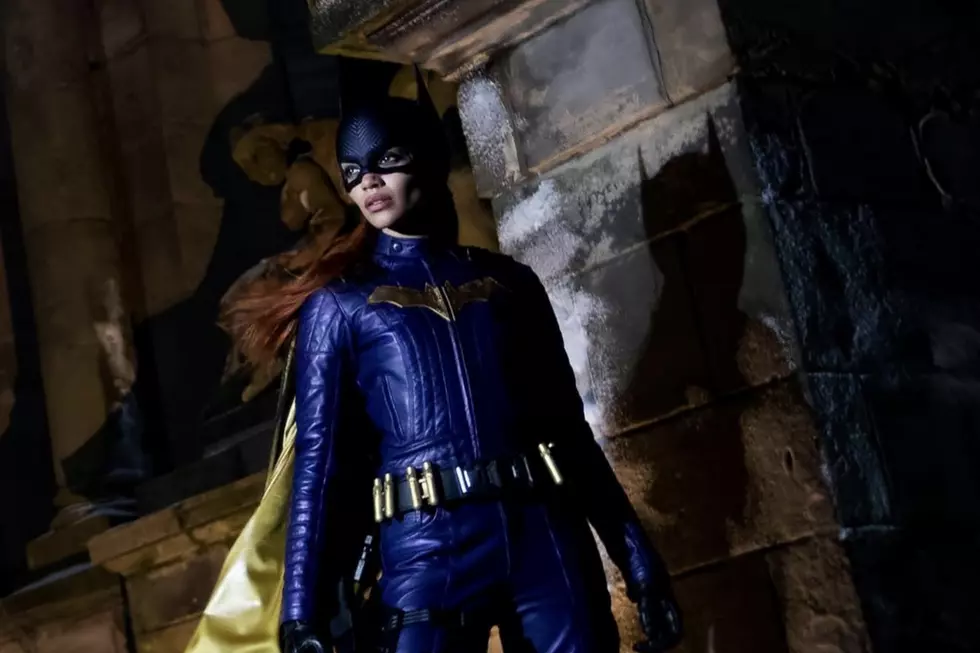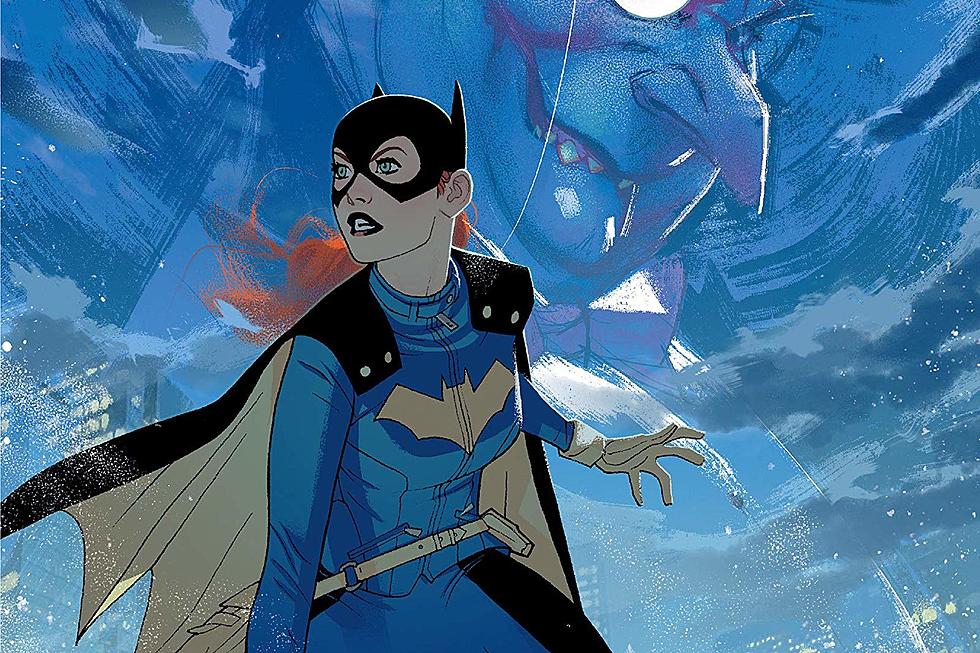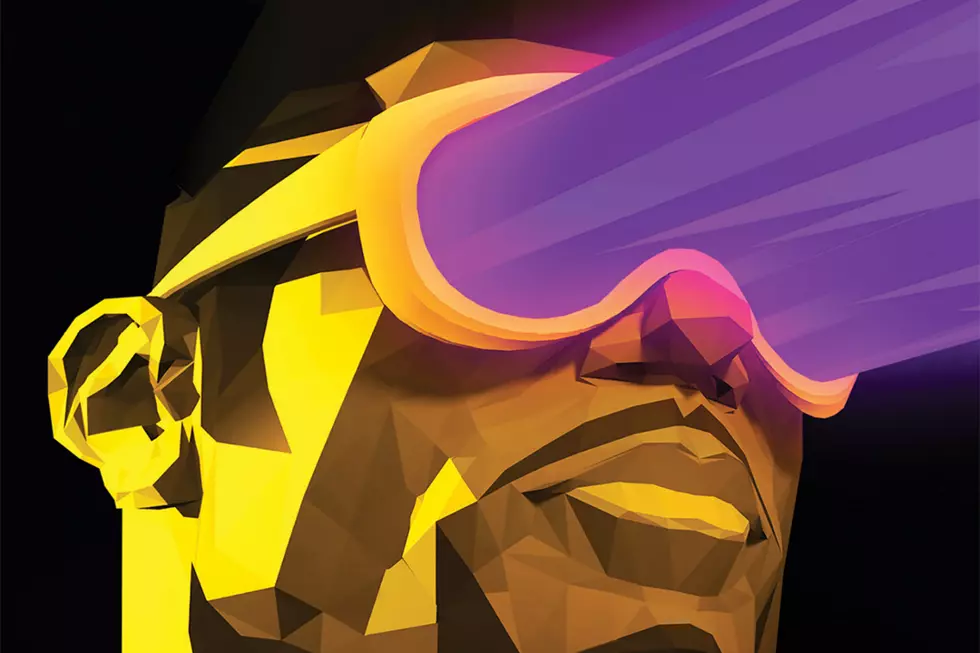
Ask Chris #209: The Strange Saga Of Batgirl Cassandra Cain
Q: Cassandra Cain: WTF happened? -- @IamMedellin
A: Here's the least shocking thing you're going to read this week: I love Cassandra Cain. That probably goes without saying, given that she's a relatively obscure member of the Batman family that made her debut when I was a teenager, but really, it goes deeper than that. She came out of the gate with a compelling edge, some phenomenally solid storytelling, and a hook for drama that put her in contrast to the rest of Gotham's assorted heroes and hangers-on, while still feeling like a natural compliment to the other characters. And then, less than a decade later, she'd gone from being a new character with an incredible amount of potential to an also-ran who only really shows up to fill space in crossovers -- something that almost never happens to characters in the Batman family, especially when they've got 70+ solo issues under their utility belts.
So what happened? Man, I can't even tell you, I just read the darn things. But folks, it got really weird there at the end.
I've mentioned before that the soft relaunch of the Batman titles in 2000 after the conclusion of the year-long "No Man's Land" story arc was something of a renaissance for the Batman titles, and Batgirl was actually a pretty big part of that. The idea of a "new Batgirl" had been floated very early on in "No Man's Land," but when the eventual reveal came that it was actually the Huntress running around in a striking new costume while Bruce Wayne was off ignoring the massive earthquake that had leveled his hometown for three months, there was a lot of speculation from fans -- me included -- about whether DC was actually going to go ahead and really introduce a new Batgirl, an identity that had, at the time, been vacant for eleven years.
Enter Cassandra Cain, courtesy of Kelly Puckett and Daimon Scott, in the pages of Batman #567:
I feel like I should note here that Cassandra Cain was saddled with what may actually be the worst name in comics history. I mean, really, I love an ominous biblical reference as much as the next person, but comics maybe should've knocked off the whole "Cain" thing once Marvel introduced an evil clone of Spider-Man who could melt your face with his spider-powers and had to spell it "KAINE" just to get through. Along the same lines, "Cassandra" is a great name, but there are roughly two hundred Cassandras in comics, and the only one who even comes close to giving that name any significance is Judge Anderson. It could not have been more generic if her name was Secrette I. Dentity.
Other than that, though, she's a really great character, and a lot of the reason why comes from the origin story that's laid out in this issue. She's the daughter of a high-priced assassin who raised her to be a living weapon, and then deployed her to kill someone, which she does, at an age when she doesn't understand what death is until she's inflicted it on another person.
There are a couple of really great things about that, and the first is that it gives her character arc an element of atonement that's completely absent in the other characters in the Batman Family, while still retaining an element of innocence. As much as there's a subset of creators who like to have Li'l Bruce Wayne basically drag his parents down Park Row and shove them in front of a mugger with an itchy trigger finger, he's clearly the victim, 100% innocent of the actual crime. With Cassandra Cain, there's a level where she's every bit as innocent, where she had no possible chance of understanding her actions and what she was being trained to do. The real murderer is very clearly David Cain, but Cassandra's the one who actually does the killing. She is, quite literally, the one with blood on her hands:
And that gives her a really unique perspective. As you may have heard, not killing is kind of A Thing with Batman, but while he is defined by being someone who (in most versions) will never take a life, Cassandra is defined as someone who has, who knows exactly what it's like, and never, ever wants to do so again, even though it's what she's been made to do.
The other thing it does is a little more general, but just as important for creating a character: It gives her a really awesome set of powers. The idea here was that Cain's experiments raising her in isolation meant that her brain was rewired, with the language centers becoming devoted entirely to combat and movement. That, at least, is the official line, but it's really just a fancy way of saying that for her, fighting is as easy as talking, and reading her opponents and reacting to their moves is just that -- it's as easy as reading a book. And that's a really clever way of creating a contrast to the rest of the Batman family.
Batman himself is an imposing physical powerhouse who tends to solve all of his problems by punching them into unconsciousness, but he's also at least nominally a detective, and his sidekicks tend to be the brainy sort too, especially at the time. With his origin as an acrobat, Dick Grayson is probably the character in the group who's defined most by physicality, but Tim Drake is the neighbor kid who's super into computers. Even more notable was the original Batgirl, Barbara Gordon -- even before she became Oracle and took to specializing in information, she was a librarian who relied on her wits and daring. They're a pretty brainy crowd.
Cassandra, on the other hand, was purely physical, something that was underscored by the idea that while she could fight as easily as we can talk, she couldn't talk or read herself, making her the odd one out in the group and providing a pretty great relationship dynamic when she started palling around with Barbara. More importantly, they showed from the start that she wanted to learn to read and speak, that she wanted to be more than just a weapon, even a weapon that's being used in a good fight.
Basically, she's Snake-Eyes from G.I. Joe as a teenage girl, which is one of the better concepts comics have ever put into an ongoing series.
So Cassandra becomes the new Batgirl and gets launched into a new ongoing series, and it's worth noting that it's actually really good. Kelly Puckett, who writes the bulk of those first few years alongside artist Damion Scott, is easily one of the most underrated Batman writers of all time, with a run on The Batman Adventures alongside Mike Parobeck that produced what were unquestionably the best Batman comics of the '90s. He takes a similar path here, with a lot of simple, single-issue stories that do a lot to flesh out the character. The second issue, which puts the focus onto Batgirl's illiteracy and her commitment to learning is still one of my favorite single issues.
Eventually, though, the series runs its course, and while that happens in comics -- a 73 issue run is nothing to sneeze at, even if I still think it's weird that they didn't let it go two more months to get to the milestone of 75 -- Cassandra as a character has never really been the same since, and a lot of it has to do with what happened right after.
See, after six years of a series that was explicitly about refusing to kill, rejecting the very idea because she had personal knowledge of what it meant, Cassandra shows up in Robin leading the League of Assassins and talking about how it's time to kill people.
As you might expect, this did not sit very well with fans.
It happened during Adam Beechen and Freddie E. Williams II's run, and they were pretty much immediately reviled for it, and not without reason. It was a huge shift that went against everything that had been established, and even worse (at least in my opinion), they took a very interesting character who had only been introduced a short time before, Nyssa al-Ghul, and killed her with a car-bomb off-panel and only mentioned it in an offhand piece of dialogue. At the time, I expected Nyssa to come back and to at least get into a feud with Cassandra over control of the League, because how in the hell are you going to kill off the new head of the League of Assassins and not even show it, but it never happened. It continues to cheese me off to this very day.
But yeah, most people were bugged by that whole thing where she decided to go on a killing spree. I'll be honest, though: This is one of those things in comics that's commonly regarded as being irredeemably terrible that I actually think is kind of a pretty good idea. If you really look at Cassandra Cain as a character, especially as a teenager, then there's a certain logic to it. For her entire life, she'd gravitated towards authority figures, first with Cain, and then directly from him to Batman, who, while trying to do the right thing, certainly kept her at arm's length and used her for his war on crime. And this whole time, she's a teenager, and it's very easy to see this development as the ultimate act of teenage rebellion.
She does, after all, know what it's like to kill someone, something that none of the other members of the Batman family know, and working alongside them in Gotham City -- particularly the Gotham of the 1999 to 2006, which is just endless misery and death in the form of stories like "War Games" -- it's pretty easy to come to the conclusion that not killing the Joker isn't doing anybody any favors. So why not take control of the League of Assassins and turn them into a force for the greater good, doing what Batman can't or won't do?
Again, it's not the way I would've taken the character and I'm pretty firmly on the side of thinking that it shouldn't have happened, but it's also the kind of story that had the same kind of morality play elements that you'd get later from "Under The Hood" and "Batman And Son." But here, it just didn't work. I mean, to be fair, it didn't really work in "Under the Hood" either, but it really didn't work here, and I think it's because the change was too big. Unlike Jason Todd, who had a long history of booting scumbags off buildings, or Damian Wayne, who was a bratty little decapitator who had the gradual and ultimately tragic arc, Cassandra had been introduced as a penitent saint, and having her just decide to throw away the past six years of character development -- while perfectly fitting with a superheroic teenage breakdown -- tanked both the character and the storyline as hard as it could. The best you could say about it was that it had some potential for some interesting growth that never paid off.
It ended up all being retconned as Cassandra getting dosed with mind-control serum by Deathstroke (ugh), which is about as sloppy a reset button as you could ask for, and actually ended up making the whole thing seem worse, even if it made it very easy to gloss over and forget. But still, the damage had been done. That is, and I'm very sad to say this as a big fan of the character, the last time she was even close to relevant. When Batgirl relaunched with Stephanie Brown in the lead role, Batgirl literally handed her a costume and walked off, stage right, pretty much vanishing for a year.
Eventually she showed back up with a slightly different costume and a new codename that's almost as terrible as her real name, Black Bat (I was kind of hoping she'd take advantage of Dick Grayson's tenure as Batman to claim dibs on "Nightwing," which I suppose she could do now that he's off being a super-spy), but she's been pretty firmly in the background ever since.
And really, that's a shame. As excited as I am to see Barbara Gordon as the Batgirl of Burnside, Cassandra Cain has a lot going for her as a character who's unique, with a lot of really good character stuff going for her -- and if anything, the relaunch of the New 52 universe provides the perfect opportunity to set her back on the right path without all the baggage of what came before. If nothing else, they could finally get her a proper costume. That stitched-up mouth on the original lost its symbolism somewhere around 2002.
Ask Chris art by Erica Henderson. If you’ve got a question you’d like to see Chris tackle in a future column, just send it to @theisb on Twitter with the hashtag #AskChris.
More From ComicsAlliance






![A New Team Bands Together In ‘Black Panther & The Crew’ #1 By Coates, Harvey, And Guice [Preview]](http://townsquare.media/site/622/files/2017/03/Black_Panther_The_Crew_1_Featured.jpg?w=980&q=75)

![DC Unveils Covers And Solicitations For June’s Bat-Books [Exclusive]](http://townsquare.media/site/622/files/2017/03/Batbooks.png?w=980&q=75)
